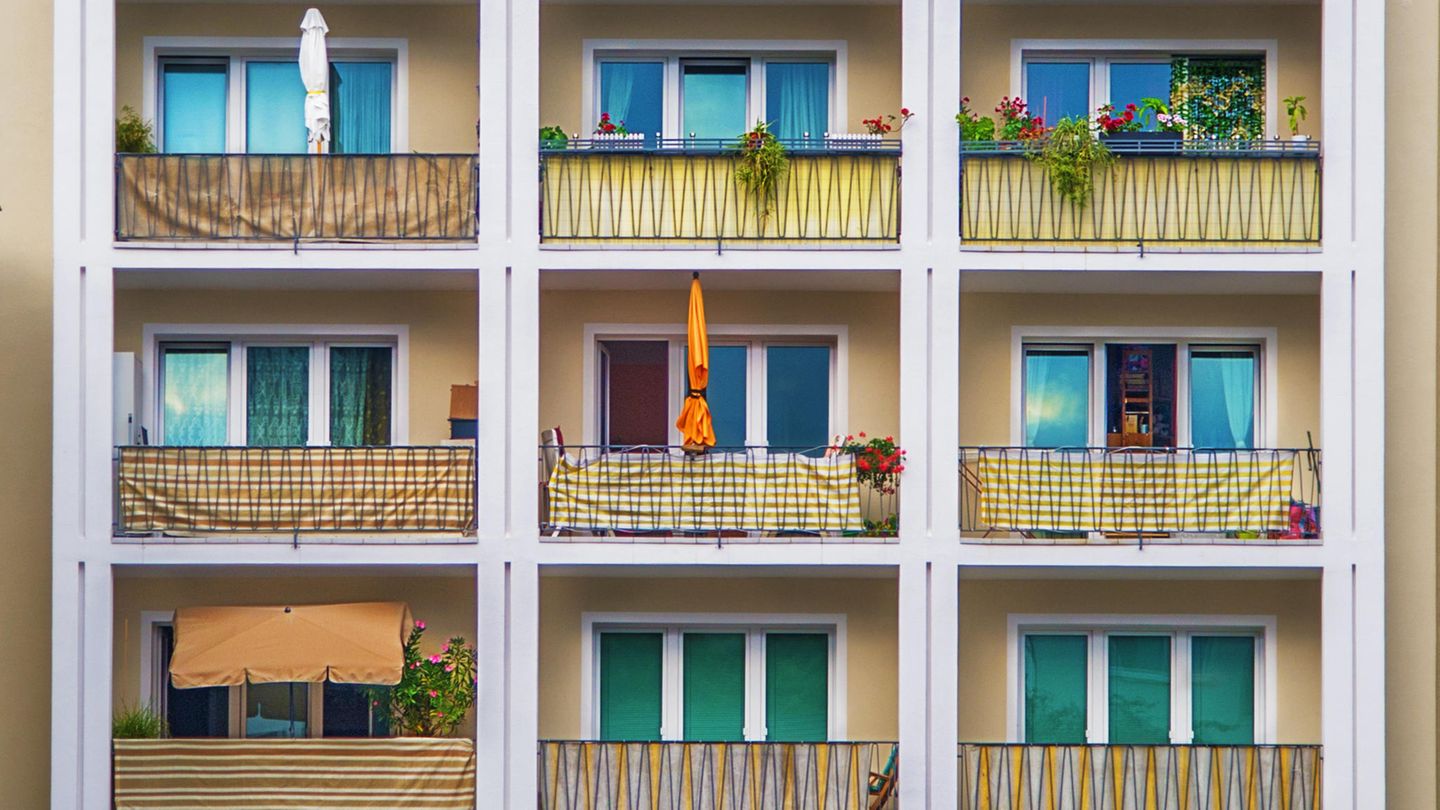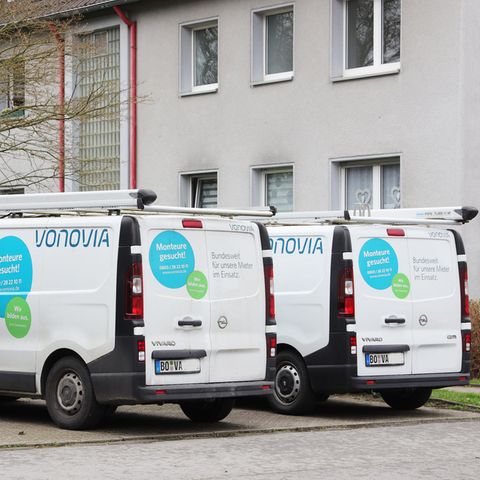Economic crisis – and me?
Rents continue to rise. When will this stop?
Copy the current link
Housing is set to become more expensive again. In this gloomy outlook for tenants, there are also glimmers of light – albeit only the faintest.
It was already dark and uncomfortably wet and cold in Hamburg. This may also be why only a few 100 people took part in the demonstration for more affordable housing. But their concern, the worry associated with it, is likely to concern millions: ever-increasing rents.
The large residential real estate groups LEG and Vonovia want to increase rents by around four percent next year. The statistics agency Eurostat calculates that Germans already have to spend an average of around a quarter of their income on housing, around five percentage points more than the average for EU countries. So the prospects for tenants in this country are going from bleak to dark? And: Does the acute economic crisis make it even worse? One after the other.
Rent from 6 to 30 euros
There is hardly a smaller market than that for rental apartments; with huge differences depending on the region, the landlords’ hunger for returns, and existing or asking rents. Prices fluctuate between six euros per square meter for existing apartments, i.e. in structurally weak regions, and a peak of around 30 euros for first-time rentals of new buildings in cities with millions of inhabitants. The only thing they have in common is the steady increase almost everywhere, most recently also in rural areas. The national average asking rents are now more than eleven euros per square meter. The real estate industry calculates that the so-called “cost rent” for new apartments has risen to 21 euros per square meter. What’s behind it? And what happens next?
Relaxation only in years
The costs for landlords have increased in recent years, sometimes by leaps and bounds: for their own or third-party administration, for tradesmen and construction services, for loans. This reduces the rental yield, at least before taxes. This partly explains the rising rents for new rentals. Prices were also driven up by the sharp increase in demand for living space, particularly in metropolitan regions, as well as the restrained new construction activity. It is primarily the effects of inflation, triggered by the Russian war of aggression on Ukraine, that have made housing significantly more expensive in this country, rather than the acute economic downturn. This does not increase existing rents immediately, but rather – depending on the rental agreement – with a delay. And generally not as strong as with new rentals. Because: An existing rent may not be increased by more than 20 percent within three years. A faint glimmer of light, at least for those tenants who don’t want or have to move in the coming months.
In the medium term, starting around five years from now, the analysts at the Empirica Institute expect the German housing market to ease. And thus also with rents. The main reason is the expectation that more will soon be built again, meaning that supply will increase. Provided that inflation and therefore loan interest rates remain as they have been recently: moderate and not driven by new geopolitical shocks. And that the demand for living space will be more moderate in the future than recently due to demographic change.
Additional costs largely stable
Not only have rents increased, but also operating costs, commonly called additional costs or “second rent”: including property tax, building insurance premiums, municipal fees for water and garbage collection. Analysts see these increases in inflation already largely factored into the additional cost discounts that tenants are already paying. The development of energy prices remains uncertain and inconsistent: Although the prices offered to new customers for electricity and gas are now well below the war shock level, they have increased slightly in the last few weeks.
Politics postponed
In the short term, politics in particular has an influence on the development of rents. The federal government has increased tax deductions for landlords, pumped money into social housing and launched funding programs. However, their goal of 400,000 new apartments annually was not achieved. The coalition also agreed on curbing energy prices and simplifying building regulations. However, it remains to be seen whether the minority government will introduce these projects into the Bundestag or receive a majority for them. In any case, it is unlikely that a majority will support the continuation of rent controls, which have been proven to curb the increase.
On the day that the brave hundred demonstrated in Hamburg, the so-called “Housing Summit” met in Berlin at the invitation of Federal Construction Minister Klara Geywitz (SPD). Probably more demonstrative than decisive. The description of the condition in Berlin and Hamburg was not far apart. When it comes to political measures, some of it does. But it will probably only be resubmitted after the federal election.
Source: Stern





